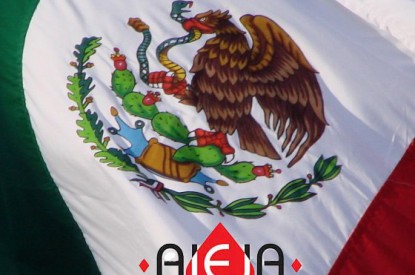Legislation
Mexico- Investment on hold as court battles over slot ban continue
By James - 5 February 2024
The Association of Permit Holders, Operators, and Suppliers of the Entertainment and Betting Industry in Mexico (AIEJA) announced that a group of operators had managed to temporarily halt the reform to Mexico’s Federal Law on Games and Sweepstakes.
In an interview with Mexican media outlet Reforma, the president of the AIEJA, Miguel Ángel Ochoa said that that around 37 companies had filed injunctions against the reform.
“The vast majority have obtained provisional suspension, and some have obtained definitive suspension,” he said, specifying that until the injunctions filed are resolved, the companies are not obligated to comply with the new regulations until a judgment is issued.
“We believe that the injunction processes should last at least three to four months, and in some cases, they can take up to a year, depending on the appeals and resources submitted to the Secretariat of Governance and the plaintiffs,” Ochoa said.
In September last year the Mexican Secretariat for Home Affairs (SEGOB) published a draft reform to Mexico’s gaming laws calling for a ban on slot machines. To justify the measure, the government argued that slots are not permitted under the 1947 act which only authorizes dominoes, chess, checkers, bowling, billiards, dice, bowling and raffles – and that Congress has not made changes to the bill since 1947.
President López Obrador banned slots in casinos and other gambling facilities via a decree in November. Operators are fighting the ban in the courts with speculation growing that the final decision could be up to Mexico’s Supreme Court. The reform will not be retroactive, so casinos will still be able to use them for the time remaining on their permits. These licenses can only have a maximum validity of 15 years. Once this time passes licenses won’t be eligible for renewal or extension. Those licenses which have been granted but have not been acted upon were cancelled.
Ochoa explained that although the new regulation does not have an immediate impact, it will be in 2028 when around 70 per cent of the establishments operating in the country will have to close their operations because their permits to maintain their activities will not be renewed.
Consequently the companies grouped in the AIEJA will pause investments estimated at USD 10 billion until the “amparo” proceedings definitively favour them. An amparo is a legal claim in Mexico to make constitutional rights effective.
“Everyone who wanted to invest in Mexico has practically halted their investments until the amparo is resolved, or obviously if there were a new law,” he told La Reforma.




